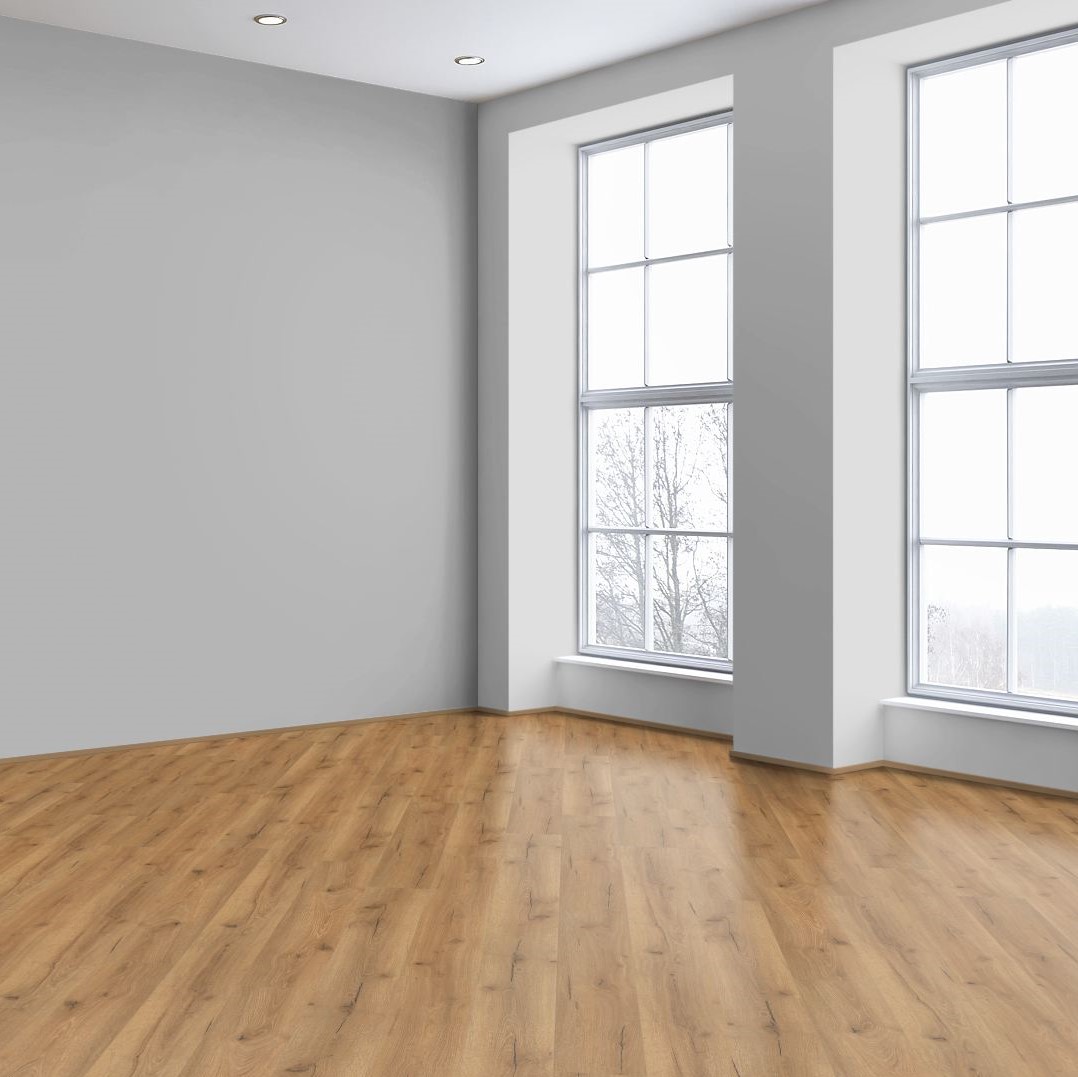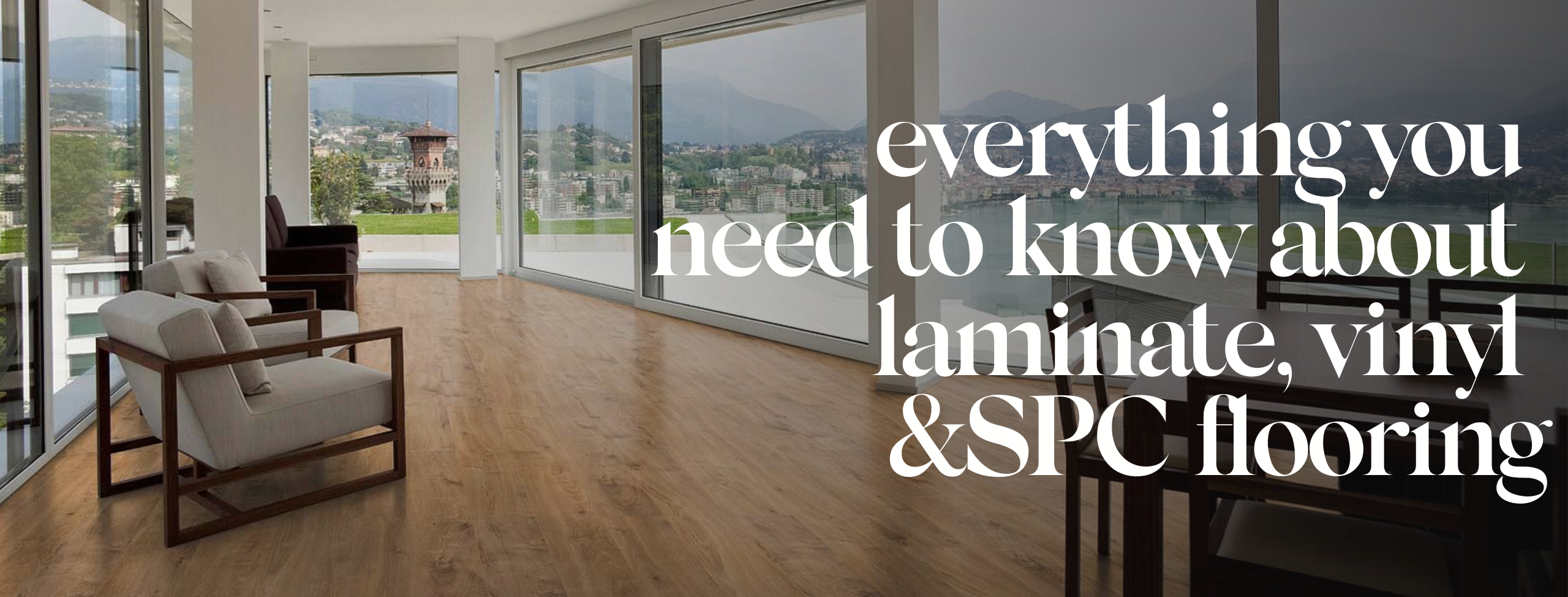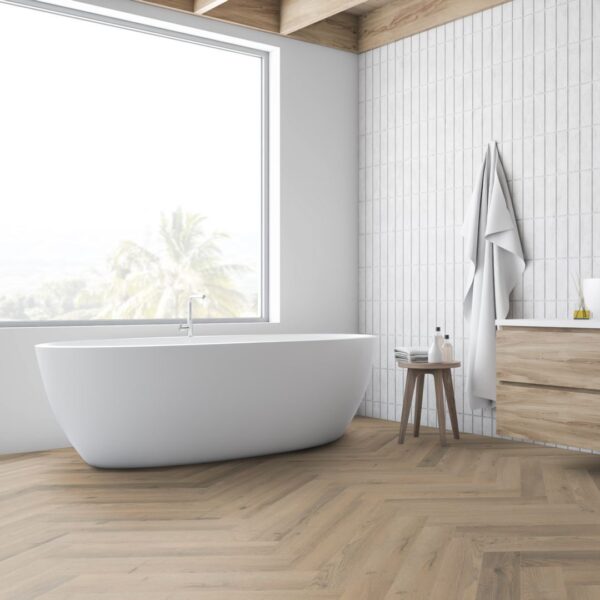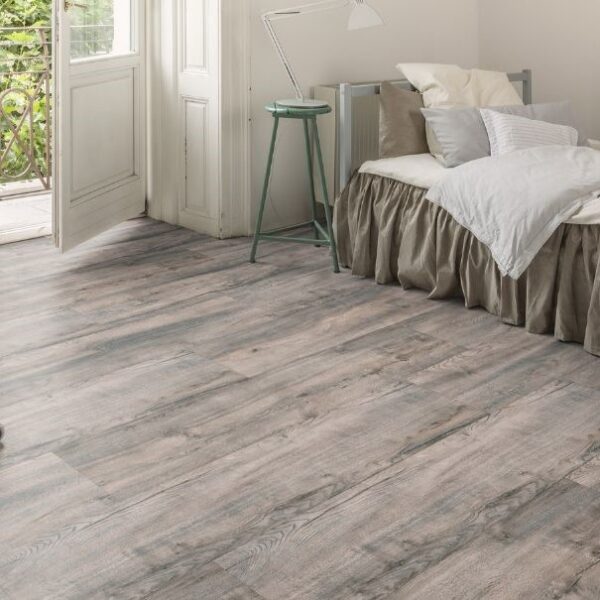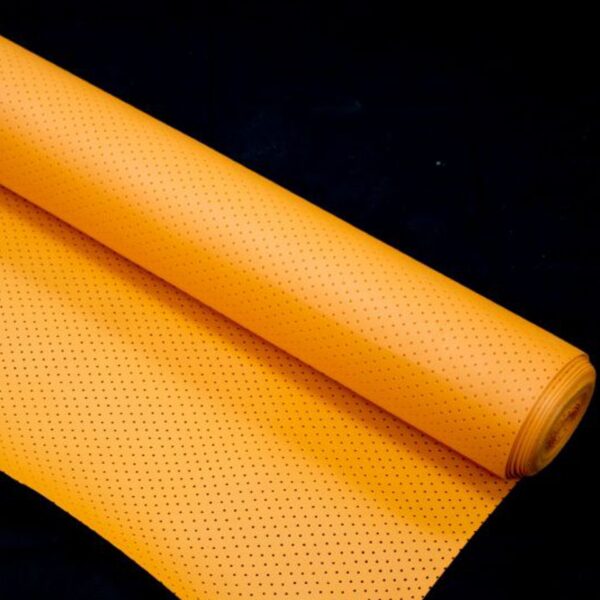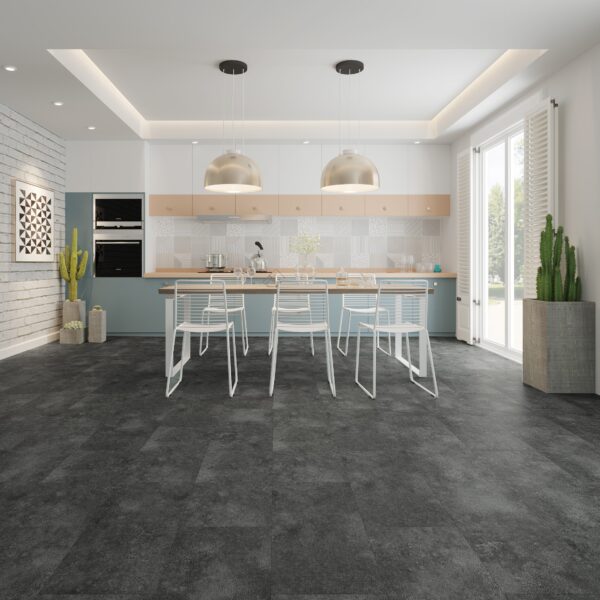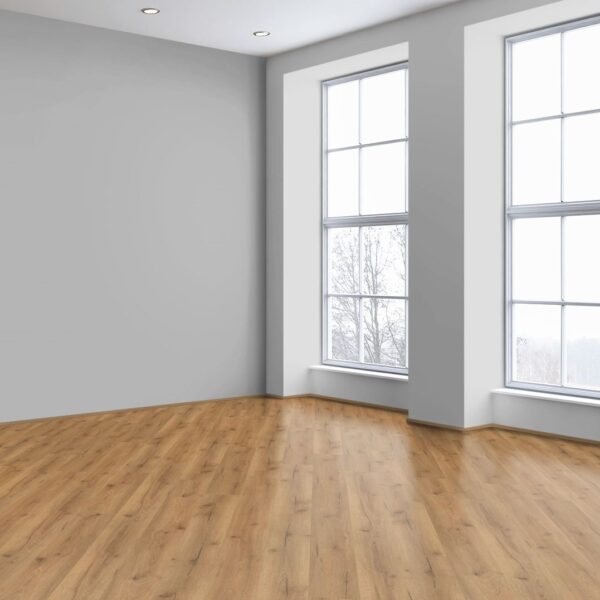The world of flooring can be a tricky one, with products like vinyl, SPC, underlay and laminate often causing confusion. Whether you're renovating a space or flooring a new build, we know that you'll want to make an informed decision on what's best for you.
Here we run through some important information that will help you when choosing flooring with us.
What's the difference between laminate, vinyl and SPC flooring?
Our three main sellers of flooring are laminate, vinyl, and SPC. While some designs may look similar, let's break them down and look at what sets them apart.
Laminate Flooring is manufactured from wood and consists of a melamine surface. These floors are possibly the most well-established among new builders and renovators.
When considering laminate, there are a few things to bear in mind. Firstly, laminate floors can absorb water, meaning they can contract and expand. Secondly, due to their "clicking" application, the choice of underlay is essential to cushion this floor. However, laminate is extremely scratch resistant, easily installed and cleaned, and provides a beautiful realistic wooden floor feel.
How thick should your laminate floor be?
Our laminates come in a range of thickness, from 8mm to 14mm. Choosing the right thickness is often a personal preference, depending on how cushioned you would like it to feel underfoot.
A thicker laminate can provide a quieter and smaller echo, and a more realistic feel.
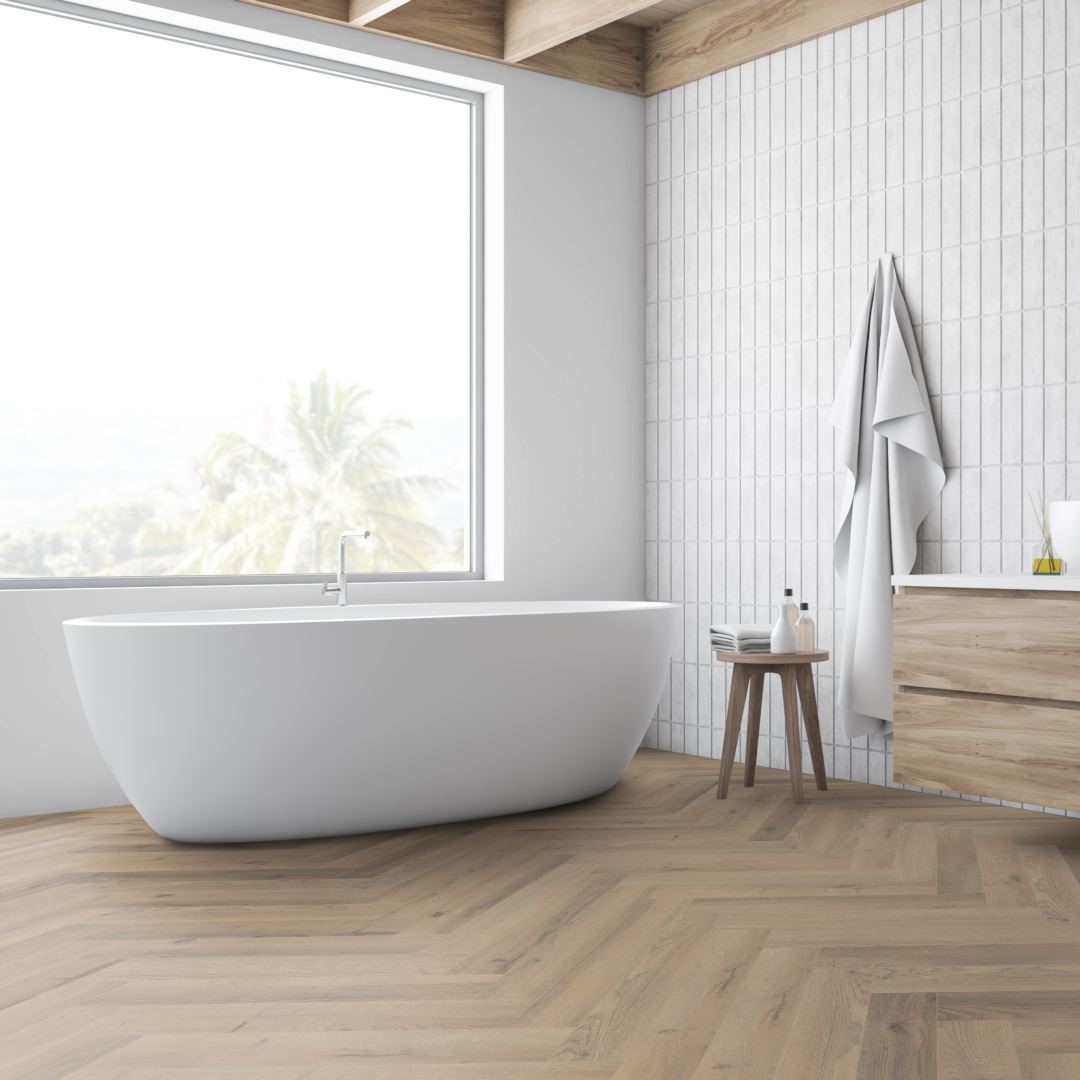
Greige Oak Herringbone Laminate 12mm
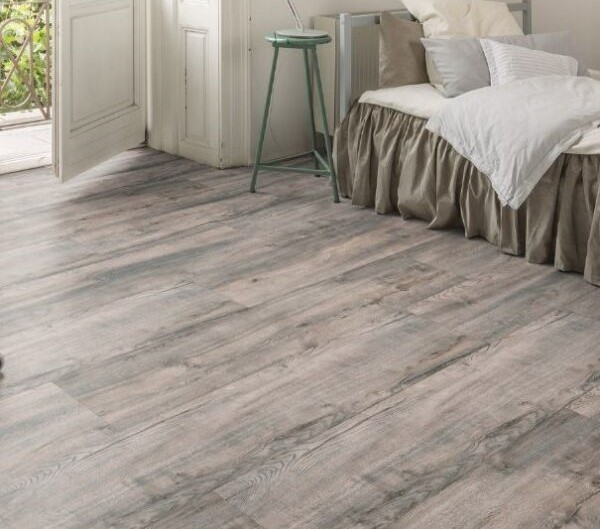
Heritage Oak Quarry 12mm
What about AC Ratings?
Every laminate has an AC Rating- or Abrasion Class Rating. This rating differs for every laminate, and gives an indication of where in the home this floor might be best suited.
AC1: Sufficient for bedrooms, walkways and closets.
AC2: Suits family rooms, living and dining rooms.
AC3: Best for a high-traffic space in the home such as hallway or corridor, and light commercial use.
AC4: Great for residential spaces and commercial areas with medium foot traffic.
AC5: The best option for a heavy commercial area.
What's the difference between laminate and vinyl?
Essentially, vinyl flooring is made of synthetic material, with a PVC or SPC core. Due to this 100% synthetic make-up, vinyl is better suited to high moisture areas, such as kitchens.
What underlay do I need for laminate?
Underlay is essential for a number of reasons. The right underlay can facilitate underfloor heating, insulation, protection and sound absorption.
Our only underlay suitable for underfloor heating is our Quick Transfer Underfloor.
Are laminate floors waterproof?
Many laminates are water resistant to a certain degree. However, it is not recommended to place a laminate floor in a damp or frequently flooded area as it cannot be guaranteed that it will withstand the conditions as this is not recommended.
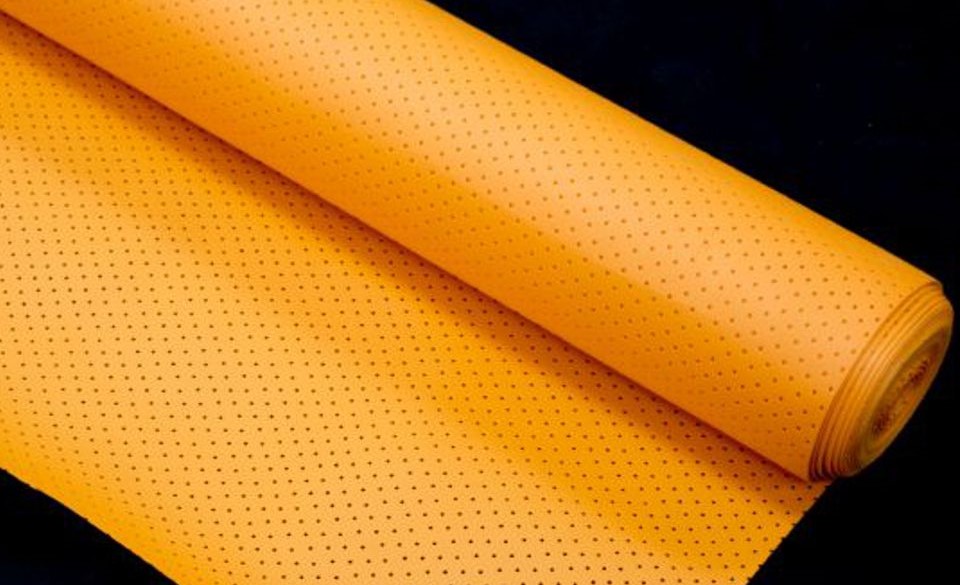
Quick Transfer Underfloor Heating Underlay Roll
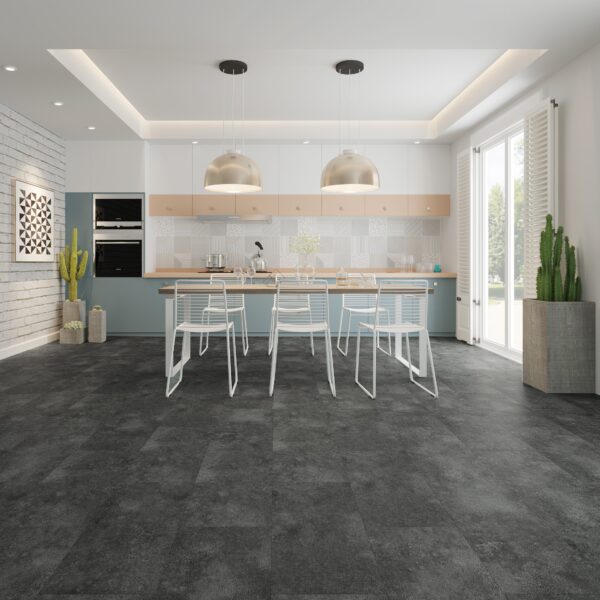
Liberty Rock Tile Dallas 5.2mm
Now we've come to Vinyl Flooring. Vinyl is a flooring compost of 100% synthetic materials. The final product produces a highly durable, affordable and practical flooring for your home. The two main kinds of vinyl available are vinyl roll and LVT- or Luxury Vinyl Tile.
LVT, or Luxury Vinyl Tile, is designed to look as realistic as laminate, giving a true wood floor effect. They come in either tile or plank formats to imitate real wood floors. LVT is generally incredibly fast and easy to install, meaning minimal downtime for each room being renovated.
Vinyl Roll has a fibreglass-cushioned-back, giving flexibility and an almost unlimited number of styles. Vinyl rolls are also one of the most affordable solutions available. They are 100% phthalate-free and have low VOC emissions, all of which contribute to healthier indoor environments.
What are the pros and cons of vinyl?
This depends heavily on the style, brand and quality of the vinyl that you choose. The advantages of a vinyl floor include its quiet and comfortable underfoot, affordability, style and design ranges and easy installation. A disadvantage may be that the vinyl will be difficult to remove if it's glued to your floor. Vinyl can also scratch or dent if heavily furniture is placed on top of it. It has been noted previously that vinyl floors do not manage high temperatures or UV exposure as well as other flooring options. This means that colour may fade if exposed to high temperatures or sunlight for prolonged periods of time.
What rooms are suitable for vinyl flooring?
Due to its high water-resistance and durability, vinyl floors can be installed essentially in any room in your home.
Its water-resistance and durability make it particularly a good choice for bathrooms or kitchens. Vinyl is also a popular choice for many other rooms in the home including living and bedrooms.
What is SPC?
Unlike a vinyl floor which has a simple PVC core, SPC flooring has a core made of stone plastic composite. Meaning SPC will be much thicker, harder and less flexible than vinyl or LVT. Compared to LVT, SPC flooring is far more durable and dent-proof.
So, which floor is best for me?
That's the age-old question! Choosing flooring is a personal and situation-specific thing for many people. Luckily, you have us on hand to help. We'll happily talk you through all of our flooring options and help you make the right choice. Talk to us today to arrange a free flooring quote below.
The Team @ Lawlor's.
